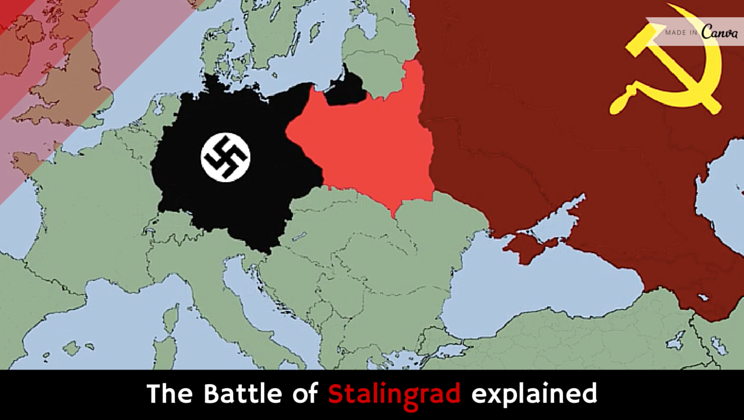The Battle of Stalingrad explained [video]
Posted by Josh Taylor / April 10, 2016
The Battle of Stalingrad was a key moment in the fight for the European theater in World War Two. It’s easy to forget what it was about though or what happened. Here’s the story in five minutes.
Full story at YouTube.
I remember: “Die Absatzbewegungen gehen wie geplant!”
You left out a few facts that America helped supply the communists with food and arms. The BOLSHEVIKS had just slaughtered millions of white Russians and were threatening all of Europe with communism when a Christian nation sided with a communist nation. Germany never dreamed an atheistic Russia would be backed by a Christian country like America.How did all of that work out or you stupid.
Hitler “encouraged” von Paulus (who had risen in part because of bureaucratic skill) to commit suicide by promoting him to field-marshal (no German field-marshal had ever been captured alive); von Paulus subsequently became the head of the National Committee for a Free Germany, an organization of captured German servicemen who worked to promote Soviet goals in the war).
Also, the pincer movement worked largely because Germany’s Italian and Romanian allies were poorly equipped, especially in terms of antitank guns, and Goering promised to keep the Sixth Army supplied by air (something similar had worked the previous winter when an army corps had been cut off and kept supplied by air south of Leningrad [the Demyansk Pocket]).
Stalingrad proved three things. This was NOT going to be a thousand year Reich, The German army was NOT invincible, and Adolf Hitler was an amazingly DUMB general wannabe.
It was a case of the Germans grossly overextending on a grand scale, like the Brits did at Arnhem on a much smaller scale. Case Blue was an act of desperation by the Germans who were running out of oil from Romania which could not keep pace with the demand. The holding of Stalingrad pinned the Germans mentally but even if they had taken Stalingrad they had no where to go and would have been completely vulnerable to a Russian winter offensive. Note that the decisive Soviet offensive was well outside of Stalingrad itself so the City itself was not of strategic value. The Germans had already clearly failed to reach the Soviet Oil Fields which were just too far away. Even had they secured both Maykop and Grozny Oil Fields which was their goal and they got close, these were not the primary oil fields for the Soviet Union and the fields would have had little value to the Germans because the Soviets would have destroyed them. The fields that the Soviets relied on where still hundreds of miles away. The Germans were already beaten in 1942, they just did not realize it. Stalingrad was the victory that signaled the end of the Germans psychologically but they already were in a hopeless situation.
I think the Soviets would have destroyed the oilfields before retreating but I imagine the Germans believed they would be able to reestablish them (already before the Polish invasion they had established specialized units to salvage captured oilfields), Stalingrad controlled access to the Volga River and taking it would have also allowed the Axis to interrupt the flow of oil from the Caucasus and British-controlled Persia.
Not even Russian winter is incredibly brutal, especially in southern Russia (the winter of 1941-42 was one of the worst of the 20th century, it was not representative of the average).
The Germans did capture Maikop in August of 1942 and held it for six months (roughly) (I’m not sure if they got the fuel facilities up and running again.)
(But in general I agree with the incredible importance of fuel to the war, although you neglect the fact that the Germans produced synthetic fuel from coal [although these factories were destroyed by Allied bombing eventually.)